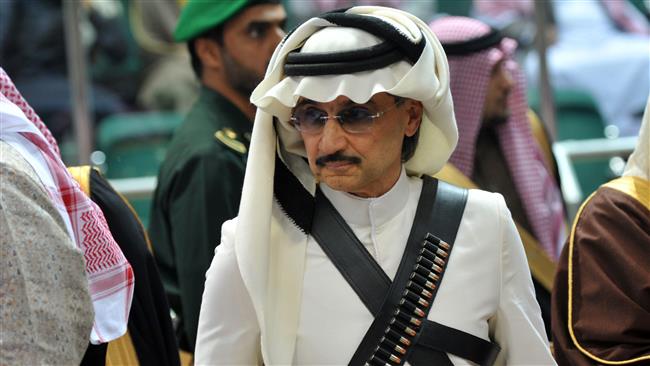Press TV- Saudi Crown Prince Mohammed bin Salman says Riyadh prefers a confrontational approach to “appeasement” in dealing with Iran.
In an interview with the New York Times published on Thursday, Mohammed bin Salman made an analogy between Iran’s growing regional influence and Germany’s hegemonic policies in the Hitler era and said, “We learned from Europe that appeasement does not work.”
Saudi Arabia has been pursuing an open warmongering policy toward Iran. Earlier this year, Mohammed bin Salman threatened to move the “battle” to Iran.
Obviously, such bellicose rhetoric has not remained unanswered.
Iranian authorities have all along made sure that Saudi royals realize that aggression of any magnitude will be reciprocated. Tehran has, at the same time, called on the kingdom to stop the war of words it has waged against Iran and return to the path of peace and dialogue.
Amid reports that Saudi King Salman seeks to relinquish power in favor of the crown prince, informed sources say Mohammed bin Salman plans to shift his main focus to Iran and Lebanon’s Hezbollah resistance movement by seeking assistance from the Israeli military after he ascends to the throne.
Yemen war
The crown prince also claimed that the country’s war on Yemen is going in favor of Riyadh, saying that its allies currently control 85 percent of Yemen’s territory.
This is while Houthi Ansarullah fighters control the main population centers in Yemen, including the capital city of Sana’a.
Saudi Arabia invaded Yemen in March 2015, using the weaponry provided by the US and its Western allies, to reinstall a former regime that had been friendly to Saudi Arabia. It also imposed a land, aerial, and naval blockade on the already-impoverished country.
Despite the Saudi-led coalition’s superior military power, the Houthis and their allies have been successfully defending the country, turning a war Saudi Arabia had hoped to finish in a matter of weeks into a quagmire that Riyadh continues to be stuck in almost three years later.

Yemeni children sit amidst the rubble of a house hit by Saudi-led coalition air strikes on the outskirts of the Yemeni capital Sana’a on November 14, 2016. (AFP photo)
Upward of 12,000 people have been killed in the Saudi-led war; and much of Yemen’s infrastructure, including factories, roads, and even hospitals, has been destroyed. The coalition has been blamed, including by its Western countries, for mounting civilian casualties in Yemen and a cholera epidemic in the country.
Earlier this month, Saudi Arabia ramped up threats to Iran, blaming Tehran for a missile strike by the Houthi Ansarullah from Yemen which struck Riyadh.
Riyadh and its allies accuse the Houthis of receiving financial and arms support from Iran. The Islamic Republic rejects the accusations, but is supportive of the Yemeni defensive campaign against the Saudi invasion.
Saudi purge of elites
In response to a question about the recent mass arrest of Saudi elites over corruption allegations, Mohammed bin Salman rejected speculation that the purge was part of a power grab campaign by the crown prince.
On November 4, dozens of Saudi princes, ministers, and former ministers were detained on the orders of Saudi Arabia’s so-called Anti-Corruption Committee headed by the crown prince.
Former spy chief Prince Bandar bin Sultan as well as billionaire prince and the king’s nephew Waleed bin Talal are among the notable businessmen and royals incarcerated.

The photo shows detained Saudi billionaire Prince al-Waleed bin Talal attending a festival in Riyadh on February 18, 2014 shows. (Photo by AFP)
According to the source, Mohammed bin Salman (MBS) has also confiscated over $194 billion from the bank accounts and seized assets of those arrested.
Mohammed bin Salman said his anti-corruption team started investigations for the so-called anti-corruption campaign in 2015 “until they collected the most accurate information, and then they came up with about 200 names.”
He noted that the arrested billionaires and princes were given two choices: “We show them all the files that we have and as soon as they see those about 95 percent agree to a settlement,” which means signing over cash or shares of their business to the Saudi state treasury.
“About 1 percent are able to prove they are clean and their case is dropped right there. About 4 percent say they are not corrupt and with their lawyers want to go to court,” he added.
The crown prince cited the Saudi public prosecutor as saying that settlements could eventually “be around $100 billion.”
On Wednesday, DailyMail.com cited an informed Saudi source as saying that Saudi Arabia has been using US mercenaries to torture the arrested elite.
The detained Saudi princes and billionaire businessmen are being strung up by their feet and beaten by American private security contractors, the report said.
The source noted that even Mohammed bin Salman himself conducts some of the interrogations as he is desperate to assert his authority through fear and seeks to uncover an alleged network of foreign officials who have taken bribes from Saudi princes.
Source Article from http://theiranproject.com/blog/2017/11/24/saudi-crown-prince-roots-confrontational-approach-iran/
 RSS Feed
RSS Feed















 November 24th, 2017
November 24th, 2017  Awake Goy
Awake Goy  Posted in
Posted in  Tags:
Tags: 













